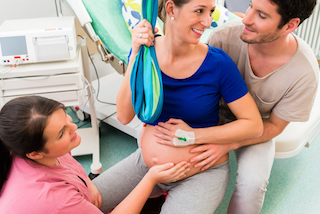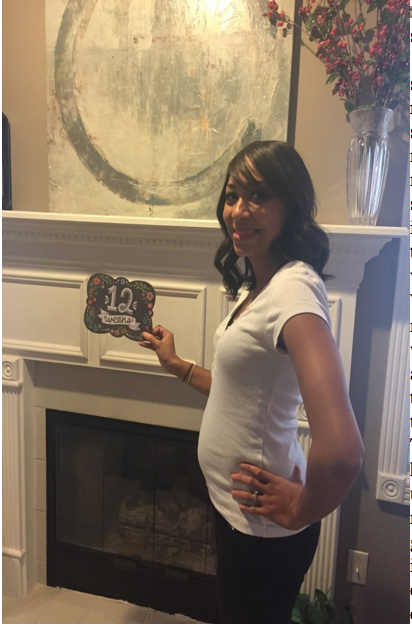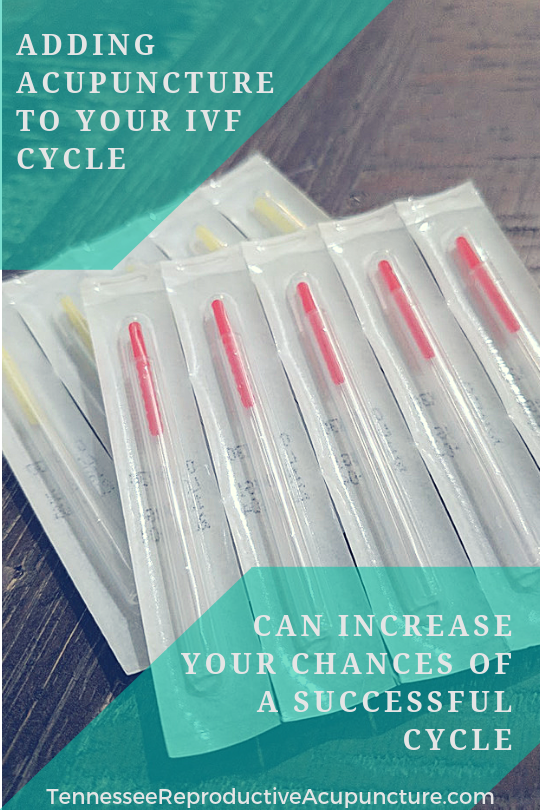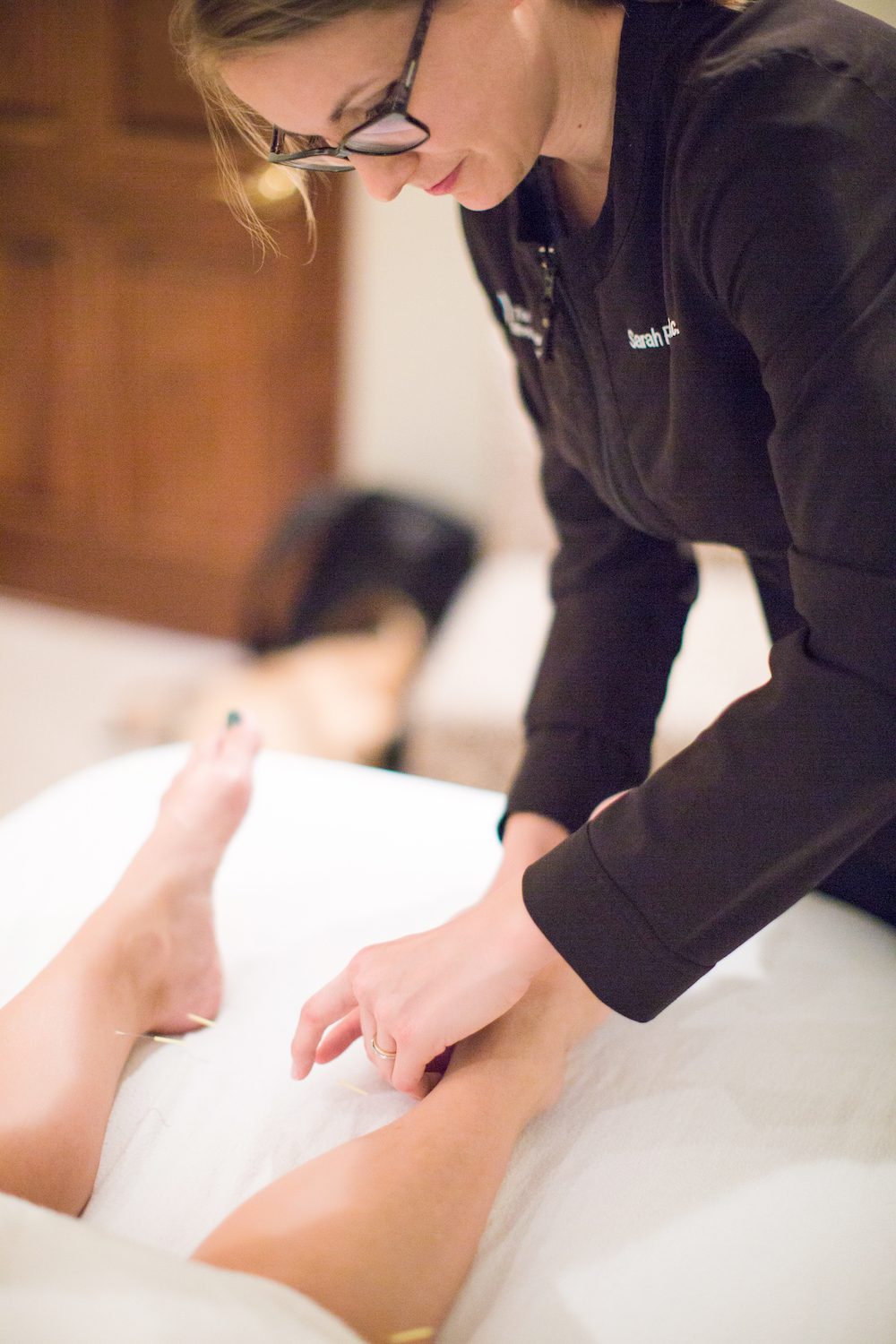
As our patients struggling with infertility finally get pregnant, aside from the joy of finally seeing those two lines, there are many decisions that need to be made. What provider is right for my pregnancy? What type of birth do I want?
Many of our patients have never allowed themselves to consider any of these things for fear of ‘putting the cart before the horse,’ so to speak. So this process, while exciting and wonderful, can be overwhelming and stressful.
One thing we often discuss with our patients, as they get closer to delivery, is their birth plan. It is our desire for our patients to be informed about their choices and have a provider they trust and feel totally comfortable with. One thing that can really help during your pregnancy and birth is having a doula. As highly trained, non-medical birth experts, they can walk through your needs, fears, desires, etc and help you come up with a birth plan and guide you and your partner through labor.
I asked a trusted doula friend of mine to do a post for our blog about what role a doula can play and why you would consider working with one. So, without further adieu, here is Hillary Ebling with East Tennessee Doulas.

Congratulations on your pregnancy! I am so glad Sarah was able to help you reach this point! Did you know, she can continue to help you throughout your pregnancy?
I am Hillary Ebling, and I am a birth doula and postpartum doula in Knoxville, TN . I work with fellow doula, Danielle Anthony, at East TN Doulas. Working as a doula, we work with expectant families so they may have the best chance of achieving their ideal birth. Our goal is that you feel confident, cared for, and respected during your childbearing year.
As you begin researching how to have a happy, healthy childbirth, you may run across the words “birth doula” and see that this is a person who supports a family during pregnancy and birth. That sounds awesome… but you already spent money on a medical provider, birth location, and higher price tag baby items like a car seat and a crib. You may think a doula is a luxury you should go without. Before your accept this, however, check out these compelling reasons to spend the money on a birth doula.
First, what is the role of a doula?
“Doula” is a Greek word meaning a woman who serves. I’m using a more formal definition of birth doula to refer to a specially trained birth companion (not a friend or loved one) who provides labor support. This labor support includes comfort measures and emotional support. “Comfort measures” means using massage, position changes, water, hot/cold packs, mindfulness, and breathing to help deal with the intensity of labor. “Emotional support” means using reflective listening, positive presence, and reassurance to help increase your confidence and satisfaction of your birth experience.
It is important to notice that doulas play a completely “non-medical” role. Doulas do not diagnose or treat in any modality, nor do we take blood pressure or temperature, fetal heart tone checks, vaginal examinations or postpartum clinical care. What this means as a client, is that you also need a medical provider, whether that is a midwife or a doctor, to attend your birth. In short, your medical providers keep you and your baby safe, provide all medications, deliver the baby, and take care of the mother postpartum, whereas the doula keeps the mother encouraged, comfortable, and confident.
Now that we have clarified the role, what are the benefits of having a doula for my clients?
First, a doula is the only team member entirely focused on the laboring parent’s physical comfort and emotional well-being.
Your medical providers attention is inherently split between two different people – exactly as it should be! We all want a happy, healthy mother and baby at the end of a birth. Their training is scientific and this is where their focus should be. Medical providers are often expected to care for multiple patients at a time and usually work shifts of time in the hospital or on-call period.
A doula’s training, on the other hand, focuses on the “art of labor support,” that is, the emotional needs of people in labor, and non-medical physical and emotional comfort measures (as mentioned in the examples above). Our sole focus is on the needs of the mother, not the baby. Unlike medical providers, doulas work with one client at a time. We will join you when asked, either in early labor or later in active labor. We will stay with you throughout, often with only very brief breaks.
Second, having a doula can help you have shorter, more satisfying birth with less interventions.
Although the exact reasons for this are unclear, there have been numerous studies showing that doulas help families. The largest systematic review of continuous labor support, reported the combined findings from 20+ randomized controlled trials, including over 15,000 women. These trials focused on the benefits of continuous support (having a support person constantly present throughout labor, not coming and going as family and medical providers often must). Women with continuous labor support are
- 28% less likely to have a cesarean section
- 31% less likely to use synthetic oxytocin to speed up labor
- 9% less likely to use any pain medication
- 34% less likely to rate their childbirth experience negatively
Why can’t a family member or partner fill the same role for free?
Outcomes were most improved and intervention rates were most dramatically lowered in the group with doulas as their support person, not a nurse, friend, or family member.
But do you need one if your partner is really supportive?
In a perfect world, your doula and your partner work together to give you the best birth possible. We cannot possibly replace the loving, intimate relationship of your partner. We don’t stand in the way of your partner being great labor support – we help him or her achieve it!
Our birth culture puts a lot of pressure on partners. A pregnant parent often expects her partner to be knowledgeable – and good – at a host of new things. You may expect your partner to help you emotionally (by providing reassurance, encouragement, and confidence in you) or physically (by encouraging coping mechanisms like breathing and relaxation and providing comfort measures like massage). Lastly, you might expect your partner to fulfill other roles, like updating family and friends of your labor progress. That’s a lot of expectations for one person to handle! For many partners, this may be the first time he or she has ever set foot in a delivery room or seen labor! Add the love your partner feels for you and your discomfort to the equation, and it can be completely overwhelming!
With a birth team of both a partner and a doula, though, we share the weight of these expectations. You will have twice the emotional support and reassurance. We can alternate providing physical support so your partner is less fatigued by the labor. We stay with you if your partner needs a break for food or to update your family. This way, you are never unsupported and your partner can have peace of mind while handling these tasks. We have seen many labors and can use our experience to provide helpful suggestions for new things to try for both you and your partner.
Last but certainly not least, doulas provide informational support to the family.
By “informational support”, I mean explanation and discussion of practices and procedures, and assistance in acquiring any knowledge necessary to make informed decisions about your care. We help you find reputable, evidence-based information that will help you make informed decisions about your birth and your new baby’s care.
In essence, a doula doesn’t tell you how you should give birth. Instead, we share information with you so you can make informed decisions and then support you, whatever your choices.
Ok, so you definitely want a doula, but aren’t doulas expensive?
Often, yes – we are trying both to answer a calling and make a living. Although not usually covered by your insurance, some insurance companies will pay a portion or allow you to pay for your doula out of a health or flexible savings account. Contact your health insurance provider for more information about your specific situation.
DONA International’s Vision is “A doula for every woman who wants one”. With this in mind, many doulas offer some way to cut costs. I offer gift certificates so friends and family can donate to help financially (consider asking for this for baby shower presents!!). We do offer some packages of our services to save a little bit of money when bundling services. I am of course happy to answer any questions you have about my current options email us or give us a call at (865)315-8548.
Bottom Line: With all this information in mind, I urge you to consider carefully the benefits and options to offset the cost before you write off having a doula off as a luxury you can’t afford!








